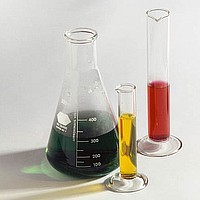Home

Buy Wholesale
-
NEW -
Amsoil Dealer
ONLINE
Registration
the Fastest Way to Register
Amsoil Dealer Application
USA - Paper
Amsoil Dealer Application
Canada - Paper
Become an Amsoil Dealer and Buy at Wholesale Prices
Amsoil Preferred Customer Trial Offer Buy 25% Off Retail
Open a
Commercial Business Account On-Line
Retail Accounts Sell AMSOIL in your Store or Shop
Amsoil Dealer Wholesale Price List
Home Business is Booming
Request a Free Factory Catalog, Product & Technical Info
Free Lubrication
E-Training Series
About Us
Contact Us
Toll Free 877-786-9582

Buy Now
Online Store

To Order
AMSOIL Products by Phone from Factory Call
7AM to 5PM
Central Time
800-777-7094
Give the Operator
Reference # 1173195
Corporate Company, Products, and
Opportunity Videos
Amsoil
Snowmobile High Performance Oils
Snowmobile Racing Oil

400,000
Miles of Snowmobile Testing - No Power Valve Sticking, Ring Sticking, & No
Engine Failure!
A Look at
Snowmobile Exhaust Power Valves
Amsoil
Snowmobile Racing & Sponsorship
2
Cycle Oil Chart
2 Cycle High
Performance Oils


Amsoil Motorcycle Synthetic Oils
Motorcycle Oil Dyno Tests
AMSOIL Quality Impresses Harley Riders

AMSOIL Does not Void Harley Warranty
Why
Harley Owners Choose AMSOIL Vs HD Oils
*NEW*
EaO Synthetic Motorcycle Oil Filters Outperforms all other Cellulose and
Synthetic Filters, Period
*NEW* EAA Synthetic Motorcycle Air
Filters Surpasses all other Technology, Period

Expert Advice For
Your Vehicle
Filter Guide

Amsoil
Transmission Product Guide
Amsoil Turbo Diesel Pickup
Truck Information Section
Amsoil Synthetic Diesel Oil
Chevy
Duramax Turbo Diesel
Ford Power
Stroke 7.3 and 6.0 Turbo Diesels
Dodge
Cummins Turbo Diesel
Biodiesel Fuel and its effects on Engine Operation and
Lubricant Service Life
*New* - Diesel Fuel Additive for Low Sulfur Fuel
Q/A - Why
Change the Former AMSOIL Diesel Fuel Additive
EPA Has Mandated Changes for 2007 Diesel Engines
AMSOIL
Diesel Oil for Model Year 2007 and Newer Heavy-Duty and Pickup Truck Diesel
Engines

Has
the price of fuel
got you down? We can help! Click on the following pages!
8.2% More MPG with AMSOIL Products
10 Ways to Help Reduce Our Dependency on Foreign Oil
Tips to Increase Fuel Economy
AMSOIL Lubricants Save You Money
AMSOIL Reduces Operating Cost and Improves Efficiency
Save Money at the Gas Pump
Alternative-Fuel-Vehicles
Amsoil Reduces Clark County Bus Operating Costs
How to Save Money on Fuel
Are You Concerned About the Environment?
Please Read the Following
AMSOIL the Right Environmental Choice
Amsoil Preserving Our Environment
Antifreeze Non-Polluting
Synthetic Oils and the Environment
AMSOIL Pi Reduces Carbon Monoxide (CO) up to 26%
By-pass Filtration Systems Dramatically Extend Oil Drain Intervals
Oil Analysis
Earth Day Article
Carbon Footprint Environment
California to Bust 3,000 Mile Oil Myth
Environment Carbon Footprint
Amsoil Company
Profile
ExxonMobil Follows AMSOIL Into Extended Drain Market
Synthetics: The Auto Industries Best Kept Secret
General
Questions And Answers
Ten Myths About Synthetic Lubrication
AMSOIL, Inc.
Product Chronology
Ford and Honda's 5W-20
Issue
North
American Engine Oils May be Harmful to European Engines
Oil
Color, Lubrication Ability and Contamination Level
Engine Oil
Flushing Procedure
The History of
Engine Oil Filtration
The Benefits
of Amsoil
Piston Failure
Warranty Laws You Need to Know
AMSOIL Warranty
Lubricants
AMSOIL Warranty
Filters
Worried Over Warranties?

Comparative Motor Oil Test Results
Oil Testing
Reference Guide
AMSOIL Outperforms Valvoline Gear Lube
New
White Paper - "A Study of Automotive Gear Lubes
Anti Wear
Additives
AMSOIL-The
Company of Firsts
Important
Information: Converting to AMSOIL and Breaking in a New Engine
Easy Steps In Changing Automatic Transmission Fluid and Filters
Transmission Flushing
Issues
Amsoil
ATF Exceeds Ford Mercon V Oxidation Test
What to do when the Change Oil Light Comes On
40 Reasons for Oil Consumption
Oil Analysis
Amsoil
Product Recommendations & Drain Interval Chart
Amsoil Motor Oil and Filter Guide
AMSOIL Racing Oils
AMSOIL Racing Grease
AMSOIL Drag
Racing ATF
AMSOIL
Racing
WIX Racing
Oil, Air, and Fuel Filters
Red Line Oil
vs. AMSOIL Racing Oil Wear Scar ASTM Test Results
Royal
Purple Oil vs. AMSOIL Racing Oils Wear Scar ASTM Test Results
AMSOIL
Checkered & Green Flag Racing Updates
AMSOIL
Racers of the Past
AMSOIL
Dealers
Informative Articles
Are
Synthetics Really Too Expensive?
Amsoil Customer
Testimonials
AMSOIL Distribution Center Locations
Amsoil Packaging
Options
Privacy Policy
AGGRAND - Natural Lawn & Garden Products

Site Map
Links & Resources
| |
Royal Purple's Synthetic Oil Advertising Claims Have Been
Challenged By BP Lubricants
The National Advertising
Division of the Council of Better Business Bureaus has recommended that Royal
Purple, Ltd., modify or discontinue certain advertising claims for it’s
synthetic motor oil.
NAD ®
News For
Immediate Release Contact: Linda Bean
212-705-0129
BP LUBRICANTS CHALLENGES ROYAL PURPLE’S CLAIMS FOR SYNTHETIC
MOTOR OIL
NAD Recommends Royal Purple Modify, Discontinue Certain Claims
New York, NY – April 1, 2009 – The National Advertising
Division of the Council of Better Business Bureaus has recommended that Royal
Purple, Ltd., modify or discontinue certain advertising claims for it’s
synthetic motor oil.
NAD, the advertising industry’s self-regulatory forum, examined
comparative performance and superiority claims in print, broadcast and Internet
advertising, following a challenge by BP Lubricants.
Claims at issue included:
• “ Independent university and
industry tests document the performance gains of using Royal Purple. When
compared to leading synthetic and conventional motor oils, Royal Purple
typically:”
“Increases horsepower and torque by as much as 3%.”
“Reduces engine wear by as much as 80%.”
“Improves fuel economy by as much as 5%.”
“Fuel economy improvement up to 5% or more.”
“Reduces engine heat by as much as 10%.”
“Reductions in heat of up to 12%.”
“Reduces engine heat by as much as 10%.”
“Reduces emissions up to 20% or more.”
“Reductions in emissions of 20% or more .”
• “Unsurpassed,” “Unparalleled,” “Most Advanced.”
• “Provides Film Strength up to 400% stronger than other
motor oils.”
• “Superior oxidation stability...”
• “API/ILSAC Certified.”
In its decision, NAD noted that the advertiser voluntarily
agreed to discontinue the claims “most advanced,” “unsurpassed performance” and
“unparalleled performance,” steps that NAD found were necessary and proper to
avoid confusion in the marketplace NAD noted that it appreciated the
advertiser’s participation in the NAD process, especially as a newcomer to the
retail automotive industry as it branches out from industrial lubricants.
Further, NAD noted that testimonials included in a wide range of auto-enthusiast
publications indicate that Royal Purple’s consumers are “vocally appreciative of
its synthetic purple engine oil.”
However, NAD noted, anecdotal evidence based solely on the
experiences of individual consumers is insufficient to support product efficacy
claims, including claims related to horsepower, torque, fuel economy or engine
heat. While the advertiser may quote from published articles if it provides
clear and conspicuous attribution to the publisher, it may not rely on such
articles to support efficacy claims for which it has no reliable independent
validation.
Following its review of the non-anecdotal evidence in the
record, NAD recommended that the advertiser discontinue the claims “Reduces
emissions up to 20% or more.” and “Reductions
in emissions of 20% or more” because the studies
on which the claims were based are outdated and not consumer-relevant.
NAD recommended that the advertiser discontinue its unsupported
claim that Royal Purple motor oil is “API/ILSAC Certified.”
Royal Purple, in its advertiser’s statement, said it
“appreciates NAD’s review of the extensive record in this matter as well as the
NAD’s recognition of the difficulty the automotive industry has with accurately
quantifying performance claims based on bench tests alone as they do not
accurately reflect real world results.”
The company noted that, while it believes the “tests and
testimonials it supplied as evidence accurately portray the benefits of using
its synthetic oil in a wide variety of applications, it defers to the NAD’s
position that those tests and testimonials alone are insufficient to support
specific performance attribute claims in consumer advertising.”
The company noted, as well, that it has “already made changes to
its advertising in accordance with the NAD recommendations and will continue to
implement NAD’s recommendations and analysis in developing Royal Purple’s future
advertising.”
NAD's inquiry was conducted under
NAD/CARU/NARB Procedures for the Voluntary Self-Regulation of
National Advertising. Details of
the initial inquiry, NAD's decision, and the advertiser's response will be
included in the next NAD/CARU Case Report.
###
About Advertising Industry Self-Regulation: The National
Advertising Review Council (NARC) was formed in 1971 by the Association of
National Advertisers, Inc. (ANA), the American Association of Advertising
Agencies, Inc. (AAAA), the American Advertising Federation, Inc. (AAF), and the
Council of Better Business Bureaus, Inc. (CBBB). Its purpose is to foster truth
and accuracy in national advertising through voluntary self-regulation. NARC is
the body that establishes the policies and procedures for the CBBB’s National
Advertising Division (NAD) and Children’s Advertising Review Unit (CARU), as
well as for the National Advertising Review Board (NARB) and the Electronic
Retailing Self-Regulation Program (ERSP). NAD and CARU are the investigative
arms of the advertising industry’s voluntary self-regulation program. Their
casework results from competitive challenges from other advertisers, and also
from self-monitoring traditional and new media. The National Advertising Review
Board (NARB), the appeals body, is a peer group from which ad-hoc panels are
selected to adjudicate those cases that are not resolved at the NAD/CARU level.
This unique, self-regulatory system is funded entirely by the business
community; CARU is financed by the children’s advertising industry, while NAD/NARC/NARB’s
sole source of funding is derived from membership fees paid to the CBBB. ERSP’s
funding is derived from membership in the Electronic Retailing Association. For
more information about advertising self regulation, please visit
www.narcpartners.org.
Article from
LUBE REPORT ()
April 8, 2009
Truth in Advertising: BP v.
Royal Purple
By George Gill
Royal Purple Ltd. was black and blue after BP
Lubricants USA took it to task over advertising
claims for its synthetic motor oil, finding a
receptive audience in the advertising industry’s
self-regulatory forum.
The National Advertising Division of the Council of
Better Business Bureaus recommended Porter,
Texas-based Royal Purple modify or discontinue
numerous advertising claims for its synthetic motor
oil, following a challenge by Wayne, N.J.-based BP
Lubricants. The NAD examined comparative performance
and superiority claims in print, broadcast and
Internet advertising. In some of the advertising,
Royal Purple compared its performance to Castrol,
Shell, Amsoil and other motor oil brands.
NAD recommended that Royal Purple discontinue its
use of consumer testimonials reporting specific
performance attributes in the absence of reliable
independent evidence showing performance capability.
“Anecdotal evidence based solely on the experiences
of individual consumers is insufficient to support
product efficacy claims, including claims related to
horsepower, torque, fuel economy or engine heat,”
the organization stated. “While the advertiser may
quote from published articles if it provides clear
and conspicuous attribution to the publisher, it may
not rely on such articles to support efficacy claims
for which it has no reliable independent
validation.”
NAD recommended Royal Purple discontinue claims such
as “Increases horsepower and torque by as much as 3
percent,” “Reduces Engine Wear by 80 percent,”
“Superior Oxidation Stability” and “Provides Film
Strength Up to 400 Percent.”
“If industry-standard tests or tests with carefully
documented controls were abandoned, there would be
no basis whatsoever for making any meaningful claims
about the relative efficacy of motor oils,” BP said
in its challenge.
NAD recommended that Royal Purple discontinue claims
that stated, “Improves fuel economy by as much as 5
percent” and “Fuel economy improvement up to 5
percent or more” because its Environmental
Protection Agency testing was inconclusive and the
“Oklahoma State Study” and single cylinder Labeco
CLR diesel engine testing cited in Royal Purple’s
advertising was not relevant. The NAD noted the 1997
OSU Study was “outdated and nothing in the record
demonstrated that the formulations of the
competitors’ oils were similar to those available
for sale on the market today.”
BP Lubricants said it hired the independent
laboratory Southwest Research Institute, in San
Antonio, to analyze power output of gasoline engines
with Royal Purple Oil and with BP’s Castrol oil for
comparisons. “The results were provided to the
challenger’s expert statistician who was not
informed of the identity of the candidate oils,” NAD
stated. “The challenger’s [BP’s] expert determined a
0.9 percent difference in power between the oils,
which did not rise to the level of statistical
significance, and is well below the 3 percent claim
made by the advertiser.”
SwRI did additional tests to independently determine
the differences in fuel economy, emissions data and
engine temperature between Royal Purple and Castrol
motor oils. According to SwRI, “there was no
statistically significant difference between the
fuel economy, emissions data or engine temperature
between the two candidate oils,” NAD said.
Following its review of the non-anecdotal evidence
in the record, NAD recommended that Royal Purple
discontinue the claims, “Reduces emissions up to 20
percent or more” and “Reductions in emissions of 20
percent or more” because the studies on which the
claims were based were outdated and not
consumer-relevant.
NAD also recommended the advertiser discontinue its
unsupported claim that Royal purple motor oil is
“API/ILSAC Certified.” Noting that API and ILSAC
licenses and certifications have many categories
with different meanings, the NAD recommended that
the company discontinue its claim that its synthetic
oils are “generally ‘API/ILSAC Certified.’”
In fact, no Royal Purple products are certified to
current ILSAC specifications.
The American Petroleum Institute licenses its
trademarked Service Symbol, or ‘donut,’ for display
on qualified engine oils, and also licenses the
ILSAC ‘starburst’ logo for oils that meet the auto
industry’s latest energy-conserving standards. In
API’s online directory of licensees for its Engine
Oil Licensing and Certification Program, Royal
Purple has a total of 23 passenger car and diesel
engine oil products listed, all licensed to use the
API donut. Five of these may additionally display
the words ‘energy conserving’ within the donut logo,
but none of the Royal Purple products are licensable
to the current ILSAC GF-4 specification and they
cannot display the starburst logo.
Royal Purple also voluntarily agreed to discontinue
the claims, “most advanced,” “unsurpassed
performance” and “unparalleled performance,” steps
the NAD said were necessary and proper to avoid
confusion in the marketplace.
“While Royal Purple also believes that the tests and
testimonials it supplied as evidence accurately
portray the benefits of using its synthetic oil in a
wide variety of applications, it defers to the NAD’s
position that those tests and testimonials alone are
insufficient to support specific performance
attribute claims in consumer advertising,” the
company said in its response to NAD. “... [Royal
Purple] has already made changes to its advertising
in accordance with the NAD recommendations and will
continue to implement NAD’s recommendations and
analysis in developing Royal Purple’s future
advertising.”
BP Lubricants did not return phone calls from Lube
Report requesting comment on NAD’s decision.
|
|
|
Published by
LNG
Publishing Co., Inc.
Copyright © 2009 LNG Publishing Co., Inc. All rights
reserved.
George Gill, Editor. Lube Report (ISSN 1547-3392) is
published by LNG Publishing Co., Inc., 6105-G Arlington
Blvd., Falls Church, Virginia 22044 USA. Phone: (703)
536-0800. Fax: (703) 536-0803. Website:
www.LNGpublishing.com.
Email:
info@LNGpublishing.com. For advertising information
contact Gloria Steinberg Briskin at (800) 474-8654 or (703)
536-7676 or
gloria@LNGpublishing.com. |
|
|
See Who's Oil is the Best -
Additional ASTM Test Results of Royal Purple and Amsoil oils:
Amsoil
Dominator 10w-30 Racing Oil -
wear protection test vs Royal Purple
Amsoil
Dominator 5w-20 Racing Oil - wear protection
test vs Royal Purple
Amsoil
Dominator 15w-50 Racing Oil
- wear protection test vs Royal Purple
Amsoil White Paper
Motorcycle
Comparative Oil Tests
Amsoil White Paper Gear Lubes
Amsoil
White Paper
Compressor Oil
|





